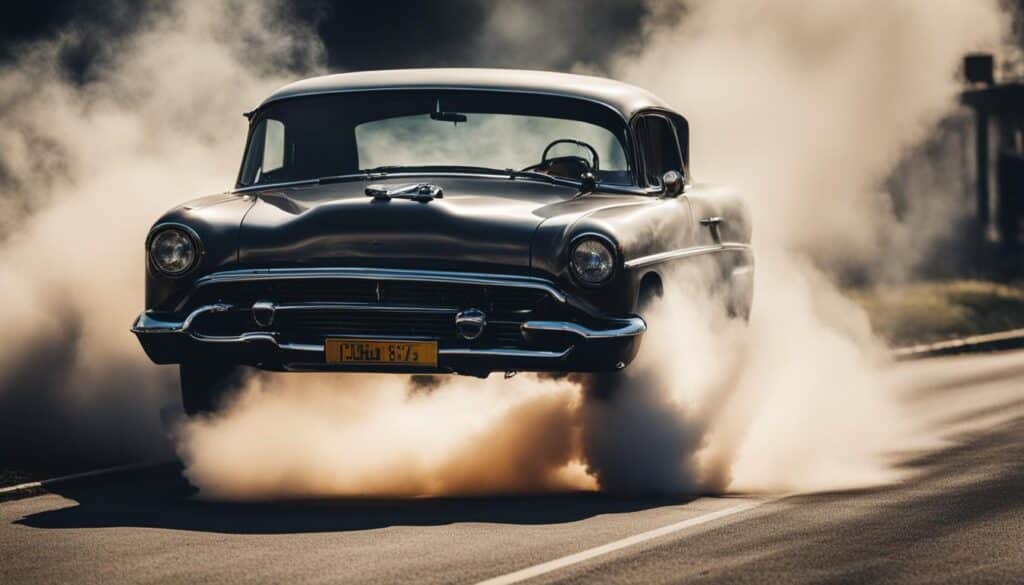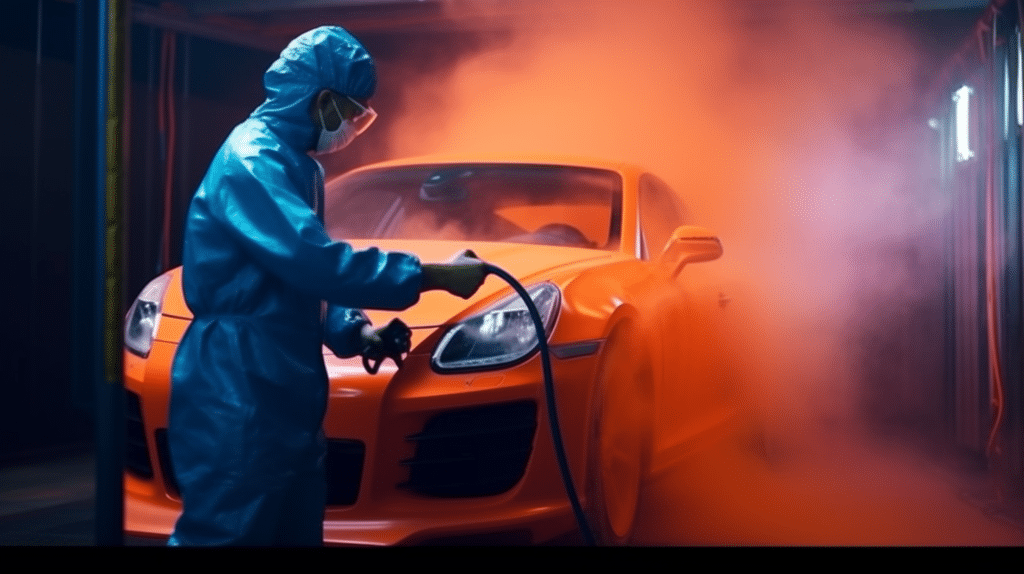A misfiring engine can be a frustrating and concerning issue for any car owner. When one or several cylinders in a car’s engine fail to ignite the air-fuel mixture properly, it can result in a range of problems. These problems include slower acceleration, rough idling, strange engine sounds, check engine light, and shaking during acceleration. To address this issue, it is important to understand the causes of a misfiring engine and the solutions available.
Some common symptoms of a misfiring engine include sluggish acceleration, rough idling, strange engine sounds like chuffing, banging, and popping, check engine light, black smoke from the exhaust, and shaking during acceleration. These symptoms may occur during startup, acceleration, or when the engine idles before coming to a halt. Paying attention to these symptoms is crucial as they can indicate a problem with the engine.
The causes of a misfiring engine can vary. They range from faulty spark plugs and ignition coils to low fuel pressure and leaks in the intake manifold gasket. Faulty spark plugs or ignition coils can disrupt the ignition system, while low fuel pressure can lead to a lean air-fuel mixture. Leaks in the intake manifold gasket can draw in excess air, causing a lean mixture. Additionally, faulty fuel injectors can supply an incorrect amount of fuel to the combustion chamber. Identifying and addressing these causes is essential to repair a misfiring engine.
Fixing engine misfires typically involves diagnosing the issue using an OBD2 scan, replacing spark plugs and coils if necessary, checking fuel pressure, and using an EVAP smoke machine to test for vacuum leaks. Regular maintenance and the use of high-quality car products can also help prevent misfires in the first place.
Key Takeaways:
- A misfiring engine can cause issues such as slower acceleration, rough idling, strange engine sounds, check engine light, and shaking during acceleration.
- Common symptoms of a misfiring engine include sluggish acceleration, rough idling, strange engine sounds, check engine light, black smoke from the exhaust, and shaking during acceleration.
- The causes of a misfiring engine can range from faulty spark plugs and ignition coils to low fuel pressure and leaks in the intake manifold gasket.
- Diagnosing and repairing a misfiring engine often involves using an OBD2 scan, replacing spark plugs and coils, checking fuel pressure, and testing for vacuum leaks.
- Regular maintenance and the use of high-quality car products can help prevent misfires.
Symptoms of a Misfiring Engine
A misfiring engine can exhibit several symptoms that indicate a potential problem. It is crucial to recognize these symptoms to diagnose and address the issue promptly. Here are some common misfire symptoms to watch out for:
- Sluggish or slower acceleration
- Rough idling
- Strange engine sounds like chuffing, banging, and popping
- Check engine light
- Black smoke from the exhaust
- Shaking during acceleration
These symptoms may occur during engine startup, acceleration, or when the engine idles before coming to a halt. It is important to pay attention to these signs as they can indicate a misfiring engine.
Causes of a Misfiring Engine
A misfiring engine can be attributed to various causes. Understanding these causes is crucial for diagnosing and fixing the issue. The following are some common misfire causes that engine owners should be aware of:
- Faulty Spark Plugs: Worn out or damaged spark plugs can disrupt the ignition system, leading to misfires. Regularly inspecting and replacing spark plugs can help prevent this issue.
- Bad Ignition Coils: Ignition coils play a crucial role in delivering the high-voltage punch required for spark plugs to fire. When these coils malfunction, misfires can occur. Proper maintenance and timely replacement of faulty ignition coils are essential.
- Low Fuel Pressure: Insufficient fuel pressure can result in a lean air-fuel mixture, which can cause misfires. Checking and maintaining proper fuel pressure is crucial in preventing this cause of misfiring engines.
- Leaks in the Intake Manifold Gasket: Leaks in the intake manifold gasket can draw unintended air into the combustion chamber, leading to a lean mixture. Regular inspection and addressing any leaks can help prevent misfires.
- Faulty Fuel Injectors: Faulty fuel injectors can supply an incorrect amount of fuel to the combustion chamber, disrupting the combustion process and causing misfires. Regular cleaning and maintenance of fuel injectors are necessary to avoid this cause of misfiring engines.
Addressing these causes promptly and correctly is vital for restoring a misfiring engine to optimal performance. Ignoring these issues can lead to further damage and more extensive repairs.
Conclusion
A misfiring engine can be a frustrating and worrisome issue for any vehicle owner. It can lead to sluggish acceleration, rough idling, strange engine sounds, and even a check engine light. However, by understanding the causes and solutions for engine misfires, you can effectively diagnose, repair, and prevent them.
Diagnosing a misfire often involves utilizing an OBD2 scanner to identify the specific faulty cylinder. Once the issue is identified, repair techniques may include replacing spark plugs and coils, checking fuel pressure, and utilizing an EVAP smoke machine to test for vacuum leaks. Remember, it’s important to address a misfiring engine promptly to prevent any further damage or performance issues.
To prevent misfires from occurring in the first place, regular maintenance is key. This includes routine inspection and replacement of spark plugs and ignition coils, ensuring proper fuel pressure, and addressing any potential vacuum leaks. Additionally, using high-quality car products in your vehicle can significantly reduce the risk of misfires and keep your engine running smoothly.
If you’re experiencing a misfiring engine and are unsure of how to proceed, it is always best to consult a professional mechanic. They have the expertise and equipment necessary to accurately diagnose the issue and provide effective repair solutions. Don’t let a misfiring engine hold you back – take action to diagnose, repair, and prevent misfires for optimal engine performance.
FAQ
What are the symptoms of a misfiring engine?
Symptoms of a misfiring engine include sluggish or slower acceleration, rough idling, strange engine sounds like chuffing, banging, and popping, check engine light, black smoke from the exhaust, and shaking during acceleration. These symptoms may occur during startup, acceleration, or when the engine idles before coming to a halt. It is important to pay attention to these symptoms as they can indicate a problem with the engine.
What are the causes of a misfiring engine?
The causes of a misfiring engine can include faulty spark plugs, bad ignition coils, low fuel pressure, leaks in the intake manifold gasket, and faulty fuel injectors. Spark plugs can cause problems in the ignition system when worn out or damaged. Ignition coils convert the low-voltage output of a car’s battery into the high-voltage punch that fires the spark plugs. Low fuel pressure can result in a lean air-fuel mixture, leading to misfires. Leaks in the intake manifold gasket can draw air into the combustion chamber, causing a lean mixture. Faulty fuel injectors can supply the wrong amount of fuel to the combustion chamber, leading to misfires. It is important to address these causes in order to fix a misfiring engine.
How can I diagnose and repair a misfiring engine?
Diagnosis of a misfire often involves using an OBD2 scanner to identify the faulty cylinder. Repairing a misfiring engine may involve replacing spark plugs and coils, checking fuel pressure, and using an EVAP smoke machine to test for vacuum leaks. Regular maintenance and the use of high-quality car products can help prevent misfires. If you experience a misfiring engine, it is best to consult a professional mechanic for proper diagnosis and repair.
How can I prevent a misfiring engine?
Preventing a misfiring engine involves regular maintenance of your vehicle, including the replacement of spark plugs and coils as recommended by the manufacturer. It is also important to use high-quality fuel and to address any engine issues promptly. Regularly checking and maintaining the fuel pressure and intake system can help prevent misfires. Additionally, using an OBD2 scanner to monitor the health of your vehicle’s systems can help identify potential issues before they lead to misfires.




